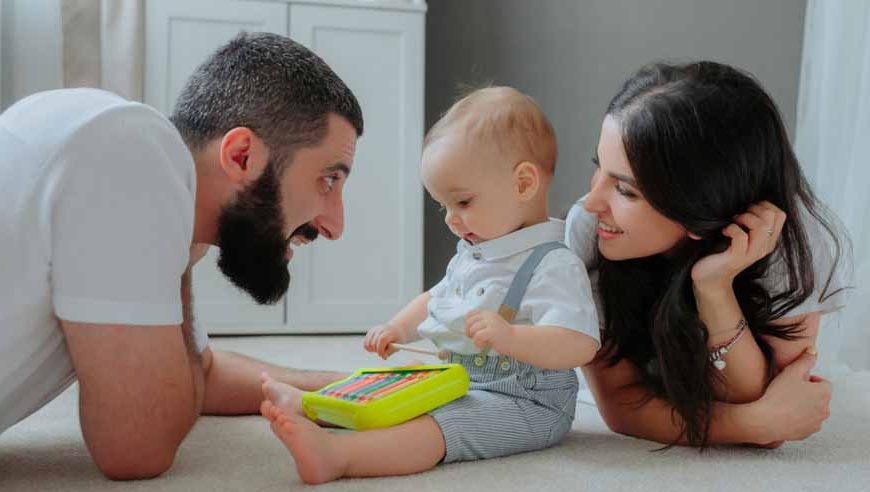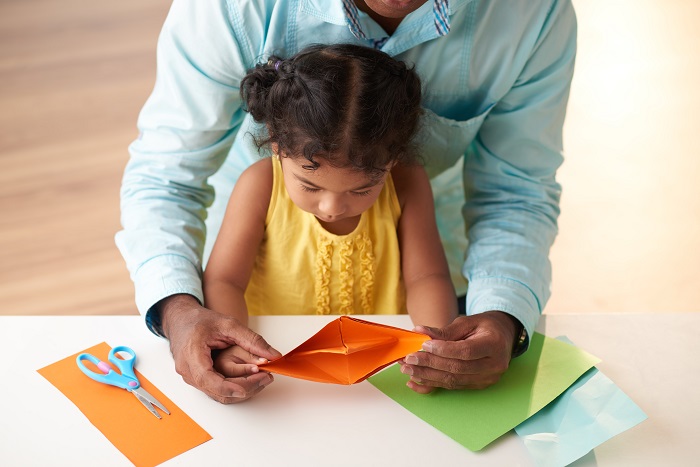‘Daddy, why is the Moon White?’ You might be thinking, didn’t my little one just ask me that? Of course, you patiently explain it to them again, and watch them listen with focused attention. ‘Yes!’ You silently exclaim. You’ve done an exceptional job of ‘properly’ explaining it to them, this time round. Until they ask you the same question, a few days later! Remember that tune that got stuck in your head the very first time you listened to it? The one that became your favourite childhood track? Remember how many times you played it, until another song came along and you didn’t listen to it all that much anymore? That’s because, as a child, you loved ‘repeating’ things! All children love to repeat things, be it playing their favourite song or reading the same book for the umpteenth time. Did you know, it’s actually essential for their Development?
In this article we will take a closer look at What is Repetition. We will discuss the Importance of Repetition in Early Childhood, and even unlock a cool Repetition Method.
If you ever thought life for young children was a mundane sequence of ‘Eat, Play, Sleep, Repeat’, think again. There’s far more to Repetition, than meets the Eye!
Repetition in the Early Childhood Years
We all have a brief idea of What is Repetition. In the context of Early Child Development, though, it becomes prudent to take a closer look at the same.
The thing is, Repetition is not limited to an activity that we might be performing over and over again. The mere act of our child being a Passive Observer to an activity that is being performed by another child, also fits in with that definition of Repetition.
Did you know that the process of ‘Learning’ actually requires ‘Electrical Energy’ to form those Neural Connections? In the case of our little ones, those neural connections are in a most ‘nascent’ stage. It is through the power of Repetition, that they boost those very connections, thereby giving an impetus to their Learning prowess.
Of course, that’s only skimming the surface, where it comes to the many wonderful benefits of Repetition in Early Childhood. Let’s move to the following section, that will explore those very benefits.
Importance of Repetition: The Benefits of Repetition in Early Childhood
There’s a reason every parent should succumb to that all familiar cry of ‘I want to do it Again!’ Presenting the myriad benefits of Repetition for little children.
A Sense of Security
What little children are looking for more than anything, is to feel secure in a world that they are not yet altogether familiar with.
It’s the very predictability of things that helps give children a sense of security. Like in their having ‘routines’. Knowing that something is ‘always going to be there’, helps them cope better in a largely alien world.
It helps them understand Boundaries
One of the best ways to keep our little ones protected, is to establish a firm set of Boundaries. How do we enforce those boundaries? By repeating them time and again! Children will actually know that you mean ‘business’, when you tell them repeatedly that they must not take candy from strangers!
The Development of Language
Want to get your child to master the English language? The solution is neatly tucked away in the word ‘Repetition’! All those ‘Nouns’ and ‘Adjectives’ that a lot of kids struggle to get firmly ensconced in their minds, become far easier to learn through the power of Repetition. Whether it is singing songs to them or merely saying the name of an object time and again to drill it in their minds, Repetition can work wonders for their Language Development.
They learn something new, every single time
You might be thinking that all Repetition is doing, is reinforcing the same thing to kids time and again, right? While the above statement is true in a sense, young children actually learn something ‘new’ with every ‘repetition’. For instance, consider the process of learning Shapes. The first time round, children might garner a brief idea of where some shapes go, as opposed to others. In time, they might even learn to identify those shapes by their Properties!
It helps them master Concepts
Concepts seem like ‘Child’s Play’ to us. For little children, however, they are far from that. It’s only through repetition of those concepts over the passage of time, that children come to understand concepts more easily. It also helps, when they are in the company of someone who has mastered the concept themselves, such as you!
The Power of Repetition: Repetition Methods
Now that we know the Importance of Repetition in Early Childhood, it’s time to search for a Repetition Method. One that will help firmly drill the likes of things like ‘concepts’, into the minds of those young learners!
- Reading Books Together
- Using toys to teach concepts
- Singing Nursery Rhymes multiple times
- Repeat, Repeat, Repeat
We have already seen how Repetition helps with Language Development. This is one way to use it to maximum advantage. When you read books to them, ensure you point out ‘patterns’ in things like ‘words that rhyme.’
Toys like Building Blocks are a truly amazing way to teach children some concepts that they would struggle to grasp otherwise. When they are surrounded by toys, they are Playing first. Learning is the sweet cherry on top!
There’s a vast gamut of nursery rhymes out there that encompass a plethora of words. Indeed, words that young children will eagerly absorb, while they listen to nursery rhymes ‘on loop.’
Make it a habit to repeat new words and phrases whenever you are around your kids. Or even, explaining difficult concepts, they are struggling to learn. After all, Practice makes Perfect!
At EuroKids, Repetition forms an important component of the way we teach children. We believe it is necessary, to bring about that vital sense of Permanence, to all those Neural Pathways that are responsible for Learning.
















